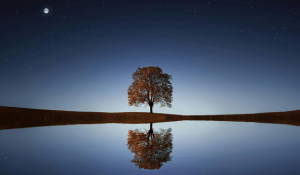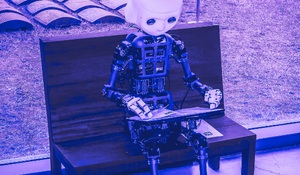The world is on fire. When hope is in short supply, we turn to Gen Z.
“The very least you can do in your life is figure out what you hope for. And the most you can do is live inside that hope. Not admire it from a distance but live right in it, under its roof.” ~Barbara Kingsolver
How do we make sense of generational differences, when each generation is an eclectic bunch, driven as much by personal desires, beliefs, and values as by world politics, global economic structures, and societal trends? We try to avoid relying on generalizations about the characteristics of generations. And yet, we believe there are trends within generations that are worth interrogating to understand something deeper about the state of the world and the possibilities for the future. One of these shifts is at the very core of what hope means today in the face of catastrophic global crises.
Every generation has been faced with the bleakness of the world – world wars, economic depressions and recessions, public health emergencies, poverty, famine – the list is long and overwhelming. In this context, we believe there are insights into generations deal with these struggles that illuminate a path forward for meaningful change.
Looking back, Gen X was stereotyped as the jaded, apathetic generation, coming up in a time of hopelessness fraught with global fears of the Cold War, the threat of economic collapse, inflation, and the reality of the limits of Boomers’ hope and action for a radically different future in the social movements of the 60s and 70s. They saw the failure to ratify the Equal Rights Amendment, the deepening of racism through redlining and housing discrimination, the devastating effects of the War on Drugs that targeted BIPOC communities in inner-city neighborhoods and its expansion to justify war and state repression throughout Latin America, the rolling back of the social safety net that deepened poverty, the HIV/AIDS epidemic, and so on – in other words, they saw so much effort and passion that could have led to a better future squashed at every turn. It’s no wonder hope was hard to come by in this generation and the ones that followed it.
Today, things are bleaker than ever – unprecedented numbers of people without permanent housing as the cost of living skyrockets, the seemingly unending violence of global wars, deep political polarization, destabilizing recessions and inflation, the tragedy of the pandemic and the promise of more pandemics to come. And running alongside it all, is the climate crisis.
Never before has a generation been faced with such an existential threat that puts the fate of humanity and nearly every other species and ecosystem on the planet at risk of annihilation. As climate scientists have been sounding the alarm for decades and their increasingly dire warnings minimized and ignored, we’re seeing a staggeringly rapid decline in biodiversity as species go extinct almost faster than they can be tracked. We’re seeing mega fires, atmospheric rivers, and catastrophic flooding, more devastating hurricanes, tsunamis, and earthquakes, drought, crop failures, rising temperatures globally that lead to the melting of the polar ice caps and warm oceans around the globe. We see unbelievable levels of multispecies suffering driven by promises of wealth, progress, and the inaction of past generations that have put into motion truly irreversible crises. Here we are, at the end of the world – stuck between climate denialism and climate delayism – simultaneously hopeless and desperate for hope.
The intractable nature of the problems today is enough to make anyone give up – surrendering to anxiety, grief, depression, and above all, profound hopelessness. But unlike in past generations, in many of our Gen Z respondents, we see not apathy or willful ignorance in pursuit of the American Dream but rage and indignation at the long history of global political infighting and indifference that’s delivered us to the state of crisis that defines the world today.
In a generation that has more reason than any other to be hopeless, we see the surprising and inspiring rumbles of hope. It’s not the unfettered optimism that drove the Boomers. Many in Gen Z know that this kind of hope hasn’t led to meaningful global change. We’re still fighting the same fights using the same tools that don’t work. The hope we’re seeing in Gen Z is a kind of hope rooted firmly in reality. It’s well documented that one of the qualities ascribed to Gen Z is the practical and sensible nature of their generation. They’re not as ambitious as previous generations that prioritized career ambition and professional success, progress above all else. We see this again and again in our research – Gen Z priorities reoriented around just having “enough” to live comfortably, an understanding that a quest for excess is in large part responsible for the unsustainable state of humanity’s impact on the planet.
Across studies, we see hope for the future in even the most mundane categories, tempered by a deeper understanding of the limits that should (no, must) be imposed to ensure planetary survival. In health and wellness, technology, and food, they’re aware of greenwashing and want brands to offer proof of meaningful progress toward sustainability. In fashion, there’s an appreciation for quality and minimalism, seeking lasting and versatile clothing and accessories that form the core of a long-term wardrobe, rather than Millennials’ appetites for fast fashion. Their approach to consumption is thoughtful and aware of the devastating effects of mindless consumerism on humanity and the planet as a whole.
In studies on college search and admissions, we’ve found a wariness of getting deep into debt without a clear path to afford to pay it off and a skepticism about the value of higher education. They don’t have grand ambitions for themselves and their careers. They are content with the dream of living modest lives. It’s not that they’re lazy or just fundamentally don’t want to work. Rather, it’s that in the face of crisis, their lives have to instead be defined by modest aspirations within responsible limits and meaningful connections with others. They want to make a difference and they know the difference they can make as individuals is small, so they have an awareness of collective action.
How can we collectively come together to, first, find hope, and second, identify paths to act on that hope? And what does hope look like in the face of existential crisis as it relates to consumption? It’s rooted in practicality, an awareness of limits, and a persistent dissatisfaction with claims to social change that don’t lead to deeper societal transformation. As companies and brands try to meet the needs of consumers, they need to understand the nature of this hope, where it’s coming from, and where it’s taking us. They need to respond to the changing nature of consumption – a new thoughtfulness, a minimalism rooted in care for each other and the planet, a rejection of the very logic that treats people as consumers above all else.
In shaking off the identity that reduces us to mere consumers, we can connect more deeply to our humanity. From the thousands of conversations we’ve had with Gen Z, we’re witnessing a level of self-awareness and emotional intelligence at the heart of what it means to hope in the face of hopelessness. Across every generation, we are all, in our own ways, experiencing a complex and sometimes contradictory set of emotions stemming from what we’re facing today, even if we’re resistant to letting ourselves fully feel and articulate them. In coming to understand the commonality of human emotion, we can learn to trust ourselves more. Following Gen Z in accessing and understanding the complexity of our own emotions – and trusting in them – can create a more nuanced experience and practice of hope, one simultaneously rooted in reality even as it’s connected to vivid imaginaries of the future.
How are you seeing a redefinition of hope around you? What does this new, more tempered flavor of hope mean for making meaningful lives in today’s world? How do we live inside hope with a greater awareness of its limits, its possibilities, its promises?



